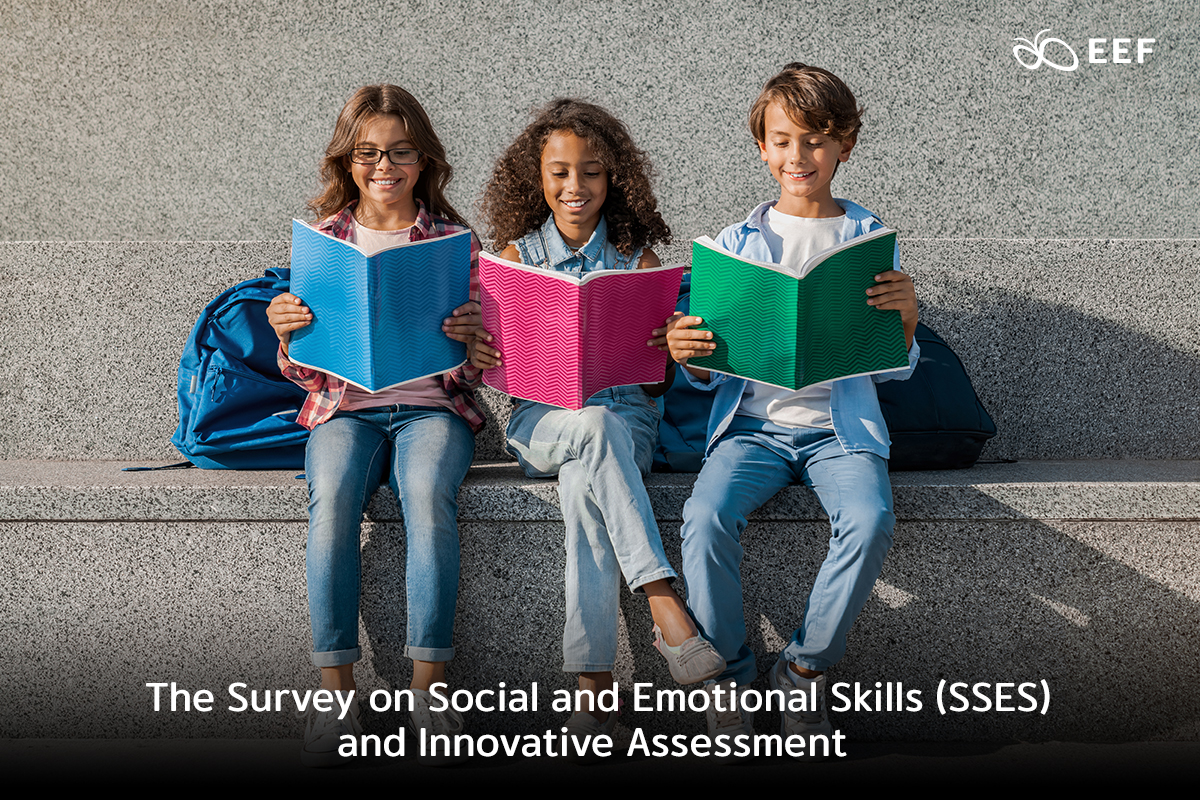
OECD Survey on social and emotional skills (SESS), round 1:
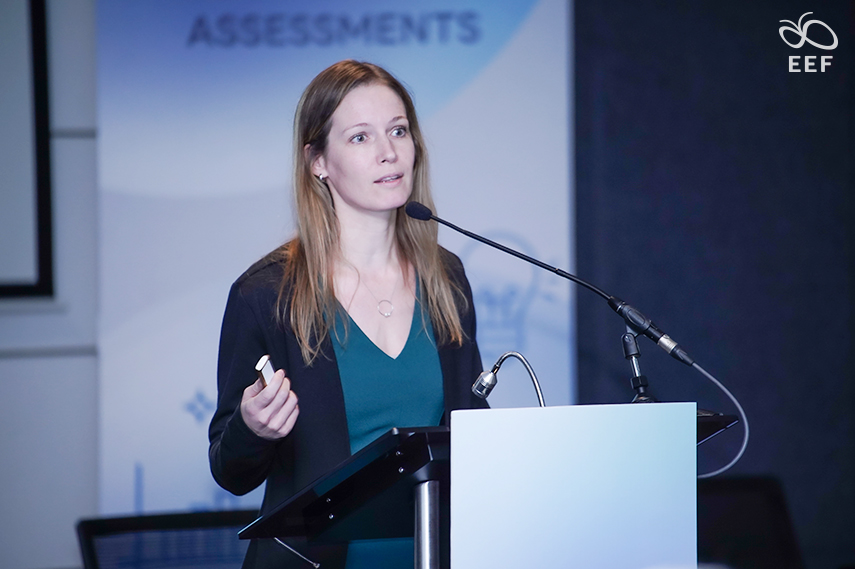
Dr. Hannah Ulferts, Policy Analyst, Organization for Economic Co-operation and Development (OECD)
The groundwork for the SSES round 1 was conceptualized in 2019 with the assessment framework in place and advice from expert groups and the Center for Educational Research and Innovation (CERI) governing board. The SSES round one assessment comprised 15 skills across five domains: task performance, emotional regulation, collaboration, open-mindedness, and engaging with others. The assessment approach is made through direct assessment that uses the student’s reports and indirect assessments with reports from parents and teachers. Simple statements, 5-point Likert scales, and positive and negative worded items were used. Moreover, the survey also collected a range of contextual data, including assessment of the social and emotional skills of 10 and 15-year-old students, collection of contextual information from parents, teachers, and principals, with a sampling of a minimum of 3000 students per city for each of the two cohorts. Participants in the first round of SSES came from different parts of the world, such as Canada, Columbo, the USA, Finland, Turkey, and China, to name a few.
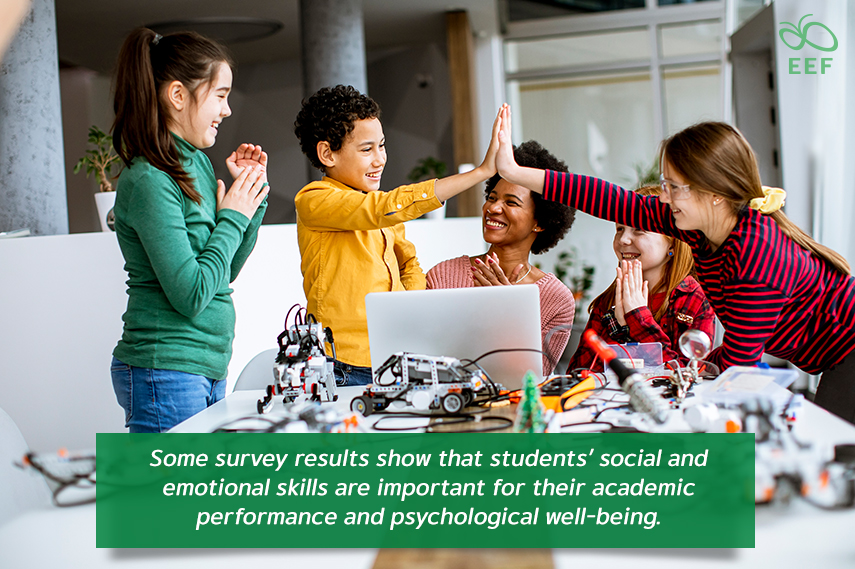
Some survey results show that students’ social and emotional skills are important for their academic performance and psychological well-being. Persistence, trust, and curiosity are positively related to academic performance, while stress resistance, creativity, and sociability are negatively associated. Students’ social and emotional skills tend to decline as they age, and girls are more impacted than boys. To tackle this, coping skills and good feelings about themselves should be guided. The survey indicates that many ten and 15-year-olds, especially girls, experience test anxiety. Social and emotional skills decline as students get older, with 10-year-olds reporting higher skills in almost all areas. Girls and boys evaluate their strengths differently, with gender-specific skill profiles emerging. There is also evidence that socio-economic disadvantage can lead to socioemotional disadvantage. The decline in social and emotional skills seems higher for girls than boys as they grow older, and girls may require greater support to promote their skills. Finally, students with higher socio-economic status tend to report higher skills.
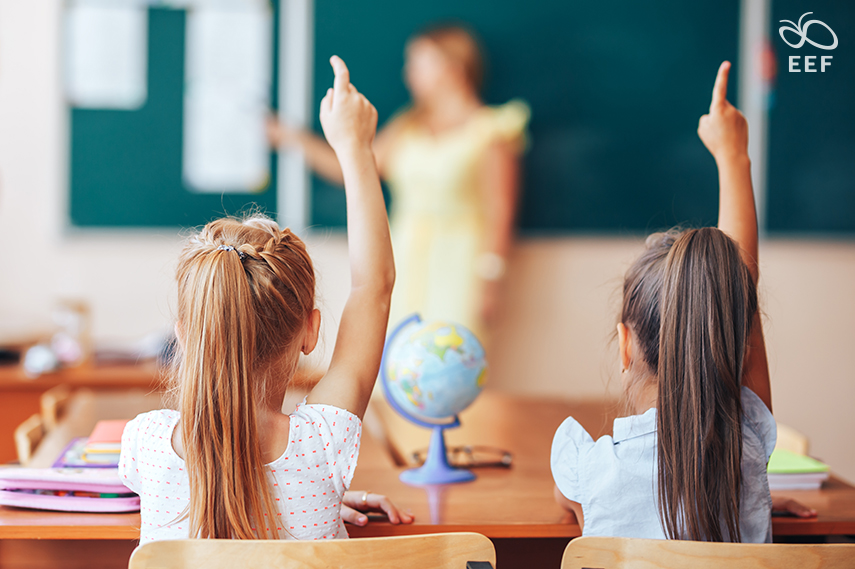
Schools are ideal for socioemotional learning, as they provide opportunities for success, building relationships, and learning that success depends on others. Students must handle complex social situations, pressure, frustration, and, eventually, failure and rejection. Social and emotional skills development is important for academic and life success. A strong community of learners can help improve skills in all areas. Academic achievements and social and emotional learning are two sides of the same coin. Students in bullying environments tend to report lower emotional skills. Better student-teacher relationships are linked with improved social and emotional skills. Teachers need sufficient training to deliver social and emotional education effectively. Teachers of 10-year-olds receive more intensive training than teachers of 15-year-olds. Cooperation with parents is important for promoting social and emotional skills. During the impact monitoring of the SSES Round 1, it was observed that participants utilized various methods to disseminate the survey results to different audiences. These methods included creating different products and organizing activities to raise awareness among policymakers, teachers, parents, and caregivers about the significance of social and emotional skills. The survey data was also utilized to identify areas of improvement within schools, develop action plans with schools, and create research-based tools and support to aid schools in implementing the strategies.
An update on the second round of the OECD Survey on Social and Emotional Skills (SSES) reveals the inclusion of new countries and some returning participants, resulting in a diverse range of entities participating. The survey preparation is currently underway, and data collection is expected to take place in the second quarter of 2023, with the results reported in Q2 of 2024.
Innovative ways of measuring social and emotional skills: The project aims to review existing studies using direct assessments of social and emotional skills (SES) and assess the potential of these measures for future data collection. The measurement approach will be determined in 2024, and item prototypes will be designed for a sub-selection of skills. The focus is on exploring and designing innovative assessments for measuring SES, refining the conceptual framework of the OECD’s model of SES, and designing new assessments that draw on the emerging field of SES assessment, particularly direct assessment.
International assessment of Global competence (PISA 2018): PISA’s global competence model has four dimensions that focus on examining local, global, and intercultural issues, appreciating diverse perspectives, interacting effectively with people from different cultures, and taking responsibility for collective well-being and sustainable development. These dimensions are supported by four building blocks: knowledge, skills, attitudes, and values. Tests are conducted to assess cognitive skills and knowledge, while self-reports and contextual information from school leaders, teachers, and parents are used to survey social skills and attitudes. Effective education for global competence involves the development of students’ knowledge, skills, attitudes, and values in relation to global or intercultural issues. The performance on the global competency test shows that teaching students math, reading, and science is insufficient, as they will not be competent in the global context. PISA 2018 survey involved 79 participating countries, with 600k students surveyed. The survey includes a global competence test and module, with data from students in 27 countries who completed both the test and module. In comparison, students in 39 other countries only completed the module. Students with positive attitudes and awareness of global issues tend to perform better in global competence. Parents play a crucial role in developing their child’s global awareness, and students from well-off backgrounds tend to be more aware of global issues. About 80% of people consider taking care of the global environment important, and girls are more likely to feel they can make a difference. Most students reported reducing energy use, staying aware of global issues, and choosing ethical products.
Education plays a crucial role in developing global competencies among students. Schools should provide diverse learning opportunities for students to learn about different cultures and backgrounds. Active engagement with global issues and interaction with diverse views is essential. Discrimination at school can negatively impact students’ respect for other cultures. Providing various learning activities can positively impact students’ attitudes toward global issues, interest in learning about others, self-efficacy, and perspective shaping. The key takeaways are that education should go beyond academic skills and include socioemotional and global aspects of learning, provide a holistic education for students to become successful, responsible citizens, recognize that learning occurs both inside and outside of school, and collaborate with multiple stakeholders to ensure effective education aligned with research on academic learning.
Assessing and integrating essential skills for learning
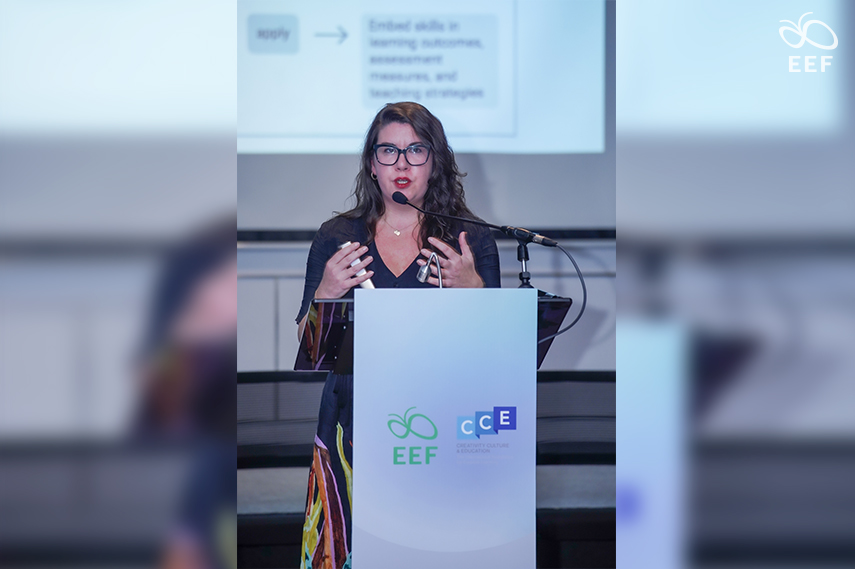
Dr. Claire Scoular, Senior Research Fellow, Australian Council for Educational Research (ACER)
ACER delves deeper into the conceptualization of skills and validates those skills from a progressive perspective. In identifying the problem, they have found that there have been global shifts where different skills are required as the world grows and expands. To develop people holistically, skills such as cooperation, attention, openness, gratitude, well-being, and optimism, to name a few, are important. ACER’s program considers the essential skills and what skills go from early learning to higher education and into the workforce. Several frameworks have different purposes and agendas, but some skills appear consistently over all frameworks. Three immediate needs were identified; the first is to understand the development and work out how these skills develop in students from a skills perspective. The second immediate need is to monitor the growth to develop students’ skills, and with this, the development framework focuses on learning progressions. Finally, there is a need to ensure alignment with the curriculum, assessment, and pedagogy. To identify essential learning skills, questions were asked to determine if the skill is important primarily for learning success and is malleable and developable through teaching. The identified essential skills are communication, self-regulation, creative thinking, collaboration, critical thinking, and emotional development. These skills are based on certain criteria, including being essential for learning, teachable, and measurable.

Understanding development: Three skills development frameworks were developed: collaboration, critical thinking, and creative thinking, with three more in progress. The frameworks provide a detailed description of skills, including strands and aspects, levels of development, education context, and goal orientation. Skills are defined in a general way but need to be contextualized to specific learning areas. Consistent terminology is important for easy understanding and implementation. An evidence-based approach is required to increase confidence in using the frameworks. The level of skills development should be defined from a growth perspective to identify where students are currently and how to improve development outcomes. Each framework defines and operationalizes the skills in detail, including strands and aspects, levels of skill development, education context, goal orientation, consistent terminology, and support for measuring, monitoring, and teaching. The skills need to be contextualized to specific learning areas for practical application. An evidence-based approach is essential for confident use by teachers and systems. Collaboration involves effective group contribution, communication, and resolution of differences. Critical thinking involves analyzing and evaluating information, reasoning, and situations for effective decision-making and problem-solving. Creative thinking involves generating novel ideas, experimenting, and ensuring quality and fit for purpose.
Understanding growth: 5 levels of skills development are broken down into relevant strands and aspects. Findings revealed that teachers wanted nuanced detail to manage and integrate different skills into the academic environment. Understanding the growth of students involves identifying where they are, seeing what needs to be done next, and monitoring growth. Students’ progress can be tracked using the different levels of skills development.
Alignment across the system emphasizes the importance of alignment across the education system and requires a strong alignment between learning outcomes, teaching strategies, and assessment criteria. The approach is to integrate the different aspects of skills development, such as how one participates in the group and how to resolve differences. Three preparation steps are recommended to ensure alignment: establishing a core strategy team, reviewing mission and vision statements, and assessing the extent to which frameworks have been adopted.
Identifying evidence: A focus on assessment: For critical thinking, examples of general and domain-specific assessments were provided, such as categorizing pictures based on commonalities and assessing critical thinking in science by identifying patterns and making connections. In creative thinking, examples of assessments for generating ideas, shifting perspectives, and manipulating concepts were given. These assessments can help understand where students are in their skill development across different domains. Another example of shifting perspective involves asking students to come up with an alternative perspective on solving a particular problem based on their role in the community and their knowledge and perspective.
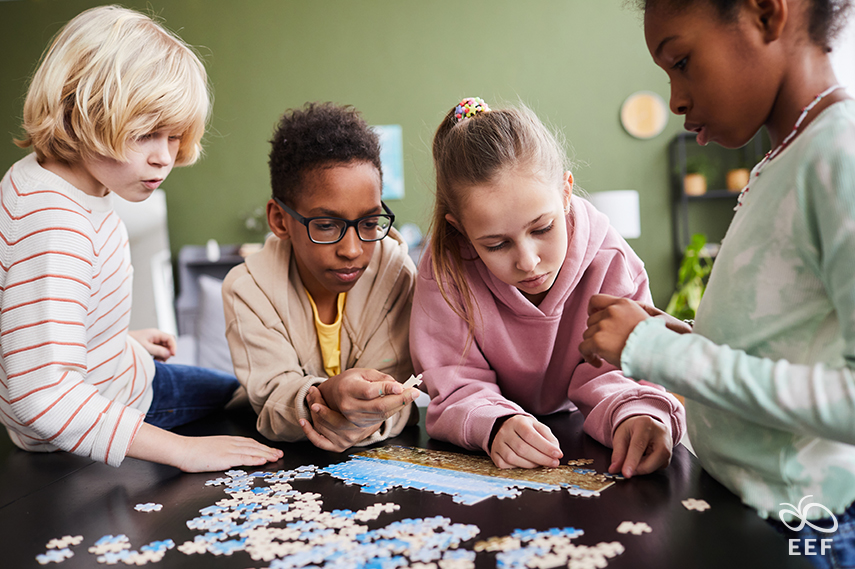
Building a collaborative task: The building of collaborative tasks is emphasized using the jigsaw approach, where multiple tasks focusing on different aspects are created, and opportunities for reflection are provided. Evidence can be captured through log files, peer evaluation, and problem-based learning, which taps into the six essential skills. Six focus areas were identified for preschool-level items, and progressions were used to observe behaviors and identify student levels. The six items identified were emotional development, collaboration, oral language literacy, executive function, observation and comparison, and physicality. The learning progression involves hypothesizing progress based on observations and theories, developing capture strategies, and finalizing the progression based on captured evidence of student competencies.
Source:
Record of the Conference: Here
Section1:
International Seminar on Pupil Outcomes Assessments, The survey on social and emotional skills (SSES) and Innovative assessments by Dr. Hannah Ulferts, Policy Analyst, Organization for Economic Co-operation and Development (OECD)
Section2:
International Seminar on Pupil Outcomes Assessments, Assessing and integrating essential skills for learning by Dr. Claire Scoular, Senior Research Fellow, Australian Council for Educational Research (ACER)

